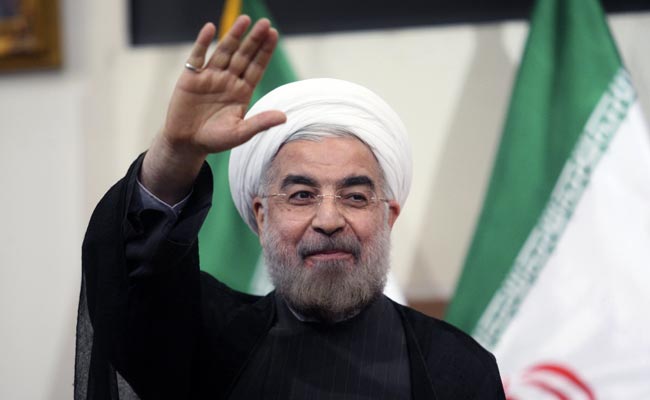Iran elections: Hardliners lose parliament to Rouhani allies

Run-off elections have given moderates and reformists a working majority in the Iranian parliament for the first time in more than a decade.
Supporters of President Hassan Rouhani won 42% of the total seats — short of an outright majority but comfortable enough to pass his legislative plans.
Independents took nearly 30% and many of them are said to be reform-minded.
Hardliners won just under a third of seats in a humiliating performance.
The run-off was held on Friday in constituencies where no candidate had won the minimum 25% of the vote at the first round in February.
The results are regarded by many as an endorsement of the nuclear agreement that the government of President Rouhani signed with the US and other world powers to curtail Iran's nuclear programme in return for the lifting of international sanctions.
President Hassan Rouhani will look at the results of the run-off elections with a good deal of satisfaction. The moderate and independent candidates have dwarfed his hard-line opponents.
Many of the independents are generally believed to be supporters of the government. This means he will have little trouble in the next parliament, which is due to start work in less than a month from now.
His first priority, according to his Foreign Minister, Javad Zarif, is the introduction of bill to guarantee citizens' rights — a major step, he hopes, that will improve human rights in the country and the rule of law.
But he still faces other centres of power that are in the hands of the hardliners, who may block his every effort to steer Iran towards moderation.
'Issue by issue'
In February, reformists also made gains in elections for the Assembly of Experts, which appoints the country's most powerful official, the Supreme Leader.
Dr Sanam Vakil, an associate fellow at Britain's Chatham House think tank, said the swing power of independent lawmakers would make for combative politics in Iran.
"It's going to be issue by issue," she told Reuters news agency.
"I don't think we should expect a group of independents to be supportive of any political, social and cultural liberalisation."
Analysts say that although the parliamentary elections are not expected to herald large-scale changes in Iranian policies, they could help President Rouhani push through economic and social reforms.
Политика конфиденциальности | Правила пользования сайтом










